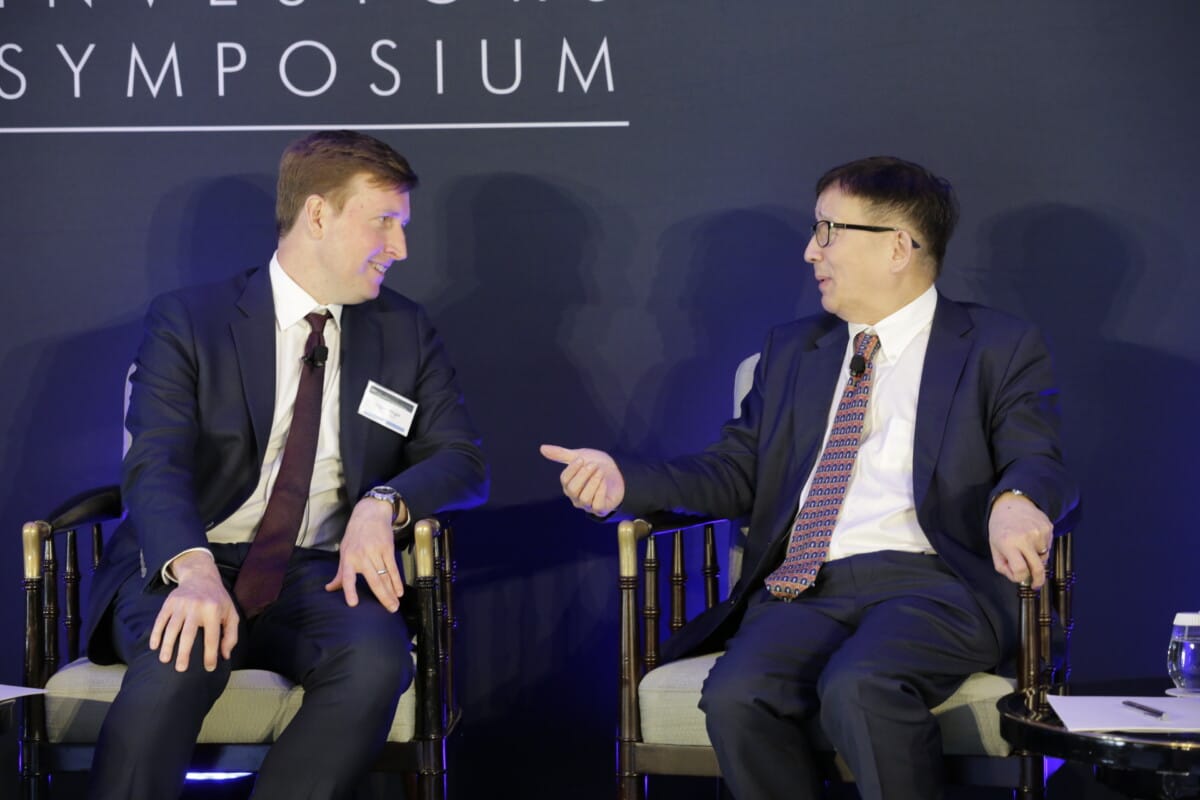The strength of China’s national leadership has been and will remain a central topic for avid China watchers around the world. As the nation heads into a structural reshuffle of its economy, investors, researchers and political scientists have different views on Chinese policymakers’ ability to work with the financial market from this point on.
At the Top1000funds.com Fiduciary Investors Symposium earlier this month, Logan Wright, China markets research partner at Rhodium Group, said Beijing’s lack of policymaking actions so far on several fiscal and economic issues is a worrying sign.
“Some believe there’s an awareness of the problem,” he told the delegates in Singapore. “There’s a belief that the [Chinese] leadership can basically counter some of these structural challenges when push comes to shove.”
“I’m a little more skeptical of that argument at this point, given what we’re seeing at this stage in Chinese economic policymaking.”
A case in point is the local government debt, which is at an historical level right now in China, Wright said. Reuters reported that the debt has reached 92 trillion yuan ($12.58 trillion) in 2022 – 76 per cent of the country’s economic output in 2022, up from 62.2 per cent in 2019.
China held its Central Financial Work Conference in November 2023 (which itself was delayed for over a year) and was supposed to discuss measures to put the debt on a more sustainable path. However, there were no concrete announcements apart from fleeting media reports on potential refinancing plans for local government financing vehicles.
“You can’t do nothing, and you can’t keep doing exactly what you have been doing in the past to fund local government investment. This is the conundrum that Beijing is facing,” Wright said.
“But the answer we’re getting is silence.
“We should now be questioning the capacity of policymakers and whether they really are aware of the challenges that are being faced, and if they do, why these solutions keep getting punted down the road.”
Confidence issue
However, think tank scholar Cheng Li disagreed and argued that despite various critical opinions, the Chinese leadership is “in relatively good shape”. Li is the Professor of Political Science at University of Hong Kong (HKU) and the founding director of its interdisciplinary think tank, the Centre on Contemporary China and the World.
That is because first and foremost – different from what the Western media tends to portray – there is no major conflict within Chinese leadership, Li said.
“Of course, factions of parties existed in China, but it’s not out of control at the moment. Otherwise, the so-called Xi Jinping’s monopoly power is just a contradiction,” he said.
“I emphasize that we cannot understand Chinese leadership’s mindset without putting China in the global perspective.
“In that regard, some would say the problems mentioned about China is also global to a certain extent. We talk about China’s local debts – what about debts in the US? In Japan? Different nature of debt, but even higher [levels].”
Addressing the World Economic Forum in Davos earlier this year, Chinese Premier Li Qiang portrayed the nation’s ability to deliver strong GDP growth without resorting to “massive stimulus” as a point of pride. Despite the mounting deflationary pressure, he said China “did not seek short-term growth while accumulating long-term risks”.
But HKU’s Li said this is not an indication that the government is unwilling to act or that a stimulus package is completely off the table, but that the nation’s leadership needs time to first determine whether it’s the right thing to do.
Looking into the next three to five years, Wright said the slowing economic growth prospect is very real in China. The lack of fiscal revenue is one key reason.
“[China’s] 17 per cent of GDP in fiscal revenue is the low end of the OECD, which has an average of 34 per cent. The US has 27 per cent,” he said. “Those are real constraints in terms of how China will meet its ambitions.”
“I think it’s very difficult to think about growth much above 3.5 per cent in the medium term.”
Li agreed that the environment is not ideal in China but emphasized that apart from pure economic factors, investors are also concerned with security and stability.
“China is among the very few countries that can claim it can maintain stability, even though that stability is because of Chinese authoritarianism,” he said.
Li said his personal observation interestingly revealed that while there is a general pessimism among Chinese elites, the wider public tends to be more optimistic about the nation’s economic status. Around the world, the recent Chinese equity rout probably lowered confidence towards the nation further for some, but Li remained steadfast.
“If confidence or policy are the real problem, don’t you think it’s relatively easy to fix compared to serious structural problems like environment or security?
“That’s the reason I’m optimistic of China. I know that I’m a minority overseas and a minority in China, but I want to make sure that side of story is heard.”



